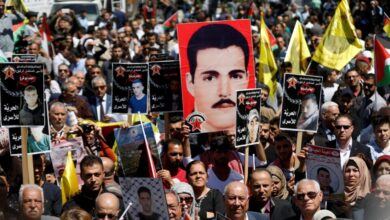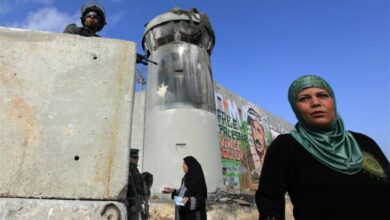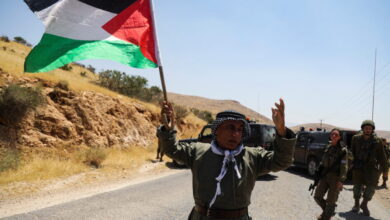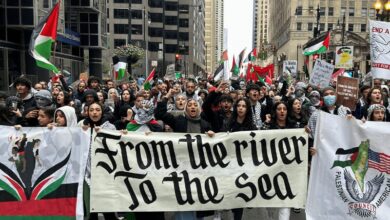Fighting for Education: Palestinian Children Under Occupation
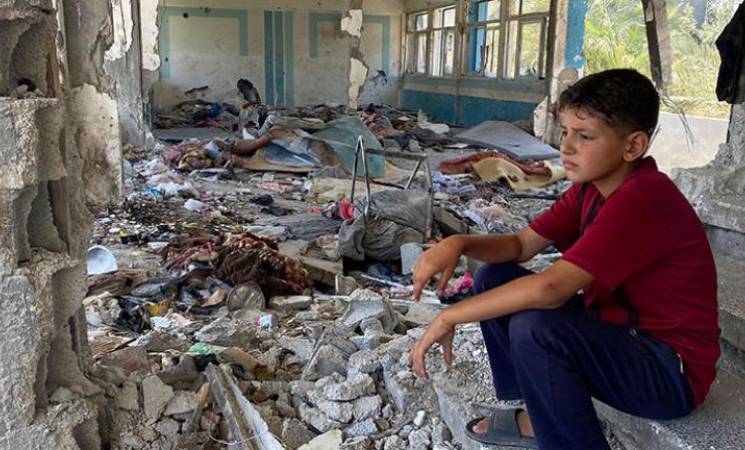
The children of Palestine, scattered across the West Bank, Gaza, and East Jerusalem, find themselves in a continuous struggle to survive and thrive under the weight of a long-lasting and oppressive occupation. Each day, they wake up to a reality shaped by military checkpoints, violence, displacement, and fear. This daily existence not only affects their physical safety but deeply impacts their emotional well-being and future prospects. In particular, their access to education—the cornerstone of any child’s development—has been gravely affected by the ongoing occupation. For Palestinian children, going to school is not merely a matter of learning; it is an act of resistance, a defiance against the forces that aim to rob them of their basic rights.
In a region where conflict has reigned for decades, where the sound of airstrikes and the sight of destroyed homes and schools have become part of the landscape, Palestinian children’s education is routinely interrupted. Schools are not just places for academic learning; they are often the very sites where children face the harsh realities of military occupation. Palestinian children have witnessed their schools being bombed, their classmates being injured or killed, and their educators detained or threatened. Despite the adversity they face, these children continue to show remarkable resilience, pushing forward with their studies in environments that are far from conducive to learning.
In Gaza, schools are frequently bombed during and after October 7 , forcing many students to abandon their studies for months at a time. The psychological toll is immense, as children grow up amidst constant violence, fear, and displacement. Yet, despite the overwhelming odds, education remains a lifeline for many of these children. For them, attending school is a refusal to be crushed by the weight of occupation and war. The dream of education becomes hope, even in the darkest of times.
The Israeli Occupation’s Impact on Education in Palestine
The Israeli occupation has caused significant disruptions to the education of Palestinian children, particularly in Gaza, the West Bank, and East Jerusalem. Schools in these occupied territories are regularly subjected to closures, destruction, and military attacks.
According to the United Nations Relief and Works Agency for Palestine Refugees (UNRWA), over 300,000 Palestinian children are enrolled in their schools. However, these schools face numerous challenges, including overcrowding, lack of resources, and vulnerability to military operations. Many UNRWA schools have also been repurposed as shelters.
At the outset of the 2023 conflict, displaced people sought refuge in 44 UNRWA schools across the Gaza Strip, excluding Khan Younis. This number rose to 73,538 internally displaced persons (IDPs) in 64 UNRWA schools throughout Gaza. By October 12, 2023, nearly 160,000 IDPs were sheltering in 57 schools in the northern and Gaza regions before evacuation orders were issued.
Reflecting on the situation in 2021, Israeli airstrikes targeted civilian infrastructure, including schools, leading to the displacement of thousands of students and teachers. These attacks halted education and left numerous schools in ruins. With schools destroyed, many children in Gaza have been deprived of a stable learning environment.
Even in the West Bank, where conditions may seem less dire, the Israeli occupation continues to disrupt education. Israeli military incursions into schools and universities are common, and students and teachers are frequently detained, harassed, or forced to halt classes. These incursions create an atmosphere of instability and fear, hindering children’s academic progress. Additionally, schools are often closed or suspended due to military operations, making it increasingly difficult for children to receive consistent education.
Beyond direct violence and military operations, the Israeli occupation also enforces severe restrictions on Palestinian movement, which directly impacts children’s ability to attend school. The construction of the Israeli separation wall has isolated Palestinian communities and impact their Identity , further hindering children’s access to education. Checkpoints, roadblocks, and the continuous expansion of settlements make it nearly impossible for many Palestinian children to reach their schools safely and on time.
The Israeli checkpoint system is especially restrictive in the West Bank. Children must pass through heavily guarded military checkpoints, where they risk detention or long delays. For instance, in cities like Hebron and Bethlehem, children often face long waits before they are allowed to pass through these checkpoints to reach their schools. As a result, many children arrive late—or sometimes not at all—making it nearly impossible for them to keep up with their studies.
The Future of Education in Palestine: Rebuilding Gaza’s Academic Landscape
Education in Gaza faces significant obstacles due to the ongoing conflict and blockade. The United Nations has stated that it will take years and billions of dollars to rebuild Gaza’s cities and educational infrastructure after peace is restored. Even if the war were to end today, Gaza’s universities would need at least three years to recover. In the meantime, academic leaders are working diligently to find sustainable solutions for Palestinian students, ensuring that education remains a priority despite the challenges.
The reconstruction of Gaza’s educational institutions requires a comprehensive approach, similar to the Marshall Plan that helped rebuild Europe after World War II. Without the proper infrastructure for practical training, particularly in critical fields like engineering, medicine, and nursing, Gaza will struggle to produce the skilled professionals needed for the future. While international aid and collaboration are vital, it is equally important that Gazan educators play a central role in the recovery process to ensure that education in Gaza remains relevant and sustainable.
The war and the long-standing blockade have caused severe disruptions in Gaza’s education system. Many schools and universities have been damaged or destroyed, and rebuilding efforts are underway. However, experts agree that it will take years to fully restore Gaza’s academic institutions. This process will require significant investments of both time and resources.
As Gaza works towards rebuilding its educational infrastructure, online learning and international partnerships are becoming essential solutions to bridge the gap. These strategies will help maintain the flow of education, even as physical schools and universities are being restored. Ultimately, a resilient and sustainable education system is critical for ensuring that Palestinian youth have the skills and knowledge to contribute to the rebuilding and development of Gaza and Palestine.
The ongoing conflict in Gaza has had a devastating impact on the education system, with nearly 90% of school buildings either damaged or destroyed.
According to the Education Cluster, 87.7% of Gaza’s school infrastructure has been directly affected by airstrikes, leaving over half a million students without access to education. Furthermore, all universities in Gaza have been rendered non-operational. This destruction has not only disrupted the education of children but also endangered their future prospects, as prolonged absence from school leads to regression in learning.
The attacks on educational institutions are a severe violation of international law, yet they continue unabated, further exacerbating the psychological toll on children already living in a warzone. Despite these immense challenges, the international community is urging a ceasefire and the restoration of humanitarian aid to help rebuild Gaza’s educational framework and secure a better future for its youth.
Global Solidarity with Palestinian
Ensuring Sustainable Support for Palestinian Children’s
Education International (EI), the world’s largest federation of education unions, has once again called for urgent global solidarity with Palestinian teachers and students who continue to face immense challenges due to the ongoing war in Gaza.
In response, EI has mobilized a global network of educators to stand in solidarity with their Palestinian counterparts. This includes providing direct assistance to over 1,000 teachers, organizing social-emotional training programs for both educators and students, and supporting initiatives that help rebuild educational infrastructure in Gaza.
The organization has also urged governments and international bodies to take swift action to end the violence, call for a lasting ceasefire, and ensure that humanitarian aid, including educational materials, can reach the affected areas. Reopening border crossings to allow the flow of essential resources and rebuilding efforts is a key demand in EI’s call for peace and justice for Palestinian educators and their students. Education International’s ongoing efforts emphasize the importance of preserving the right to education for every child, even in the most challenging and dangerous conditions.
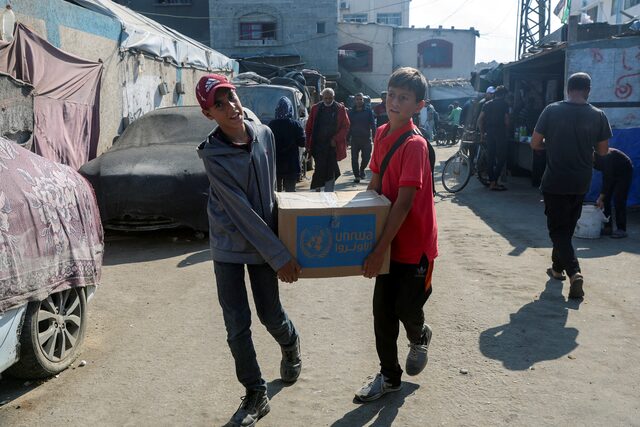
(EAA) Foundation
The Education Above All (EAA) Foundation, a global initiative founded by Her Highness Sheikha Moza bint Nasser of Qatar, has been a key advocate for the rights and access of marginalized communities worldwide. In Palestine, particularly in Gaza, where conflict and occupation have severely damaged infrastructure, the foundation’s work has been essential. Through programs like Protect Education in Insecurity and Conflict (PEIC) and Educate A Child (EAC), EAA has provided crucial support to children and youth facing immense challenges. With schools often targeted during airstrikes and the psychological toll of conflict affecting children’s well-being, the foundation has worked tirelessly to restore opportunities for Palestinian youth, ensuring they have access to safe spaces for learning and development amidst ongoing adversity.
In Gaza, where more than 200 schools were damaged or destroyed during recent escalations, EAA has partnered with local organizations and international bodies to provide alternative solutions, including temporary learning spaces and access to education for displaced children.
The foundation has also been instrumental in providing psychological support to students and teachers, offering resources that help them cope with the trauma of living under constant threat. Beyond physical rebuilding efforts, EAA’s work in Gaza also includes scholarship programs, vocational training, and leadership initiatives aimed at equipping Palestinian youth with the skills they need to contribute to their communities and rebuild their nation in the future. Despite the persistent challenges, including movement restrictions, a lack of resources, and the overarching difficulties of life under occupation, Education Above All’s work continues to provide a beacon of hope, helping to ensure that education remains a tool for resilience, resistance, and empowerment for Palestinian children and youth in Gaza.
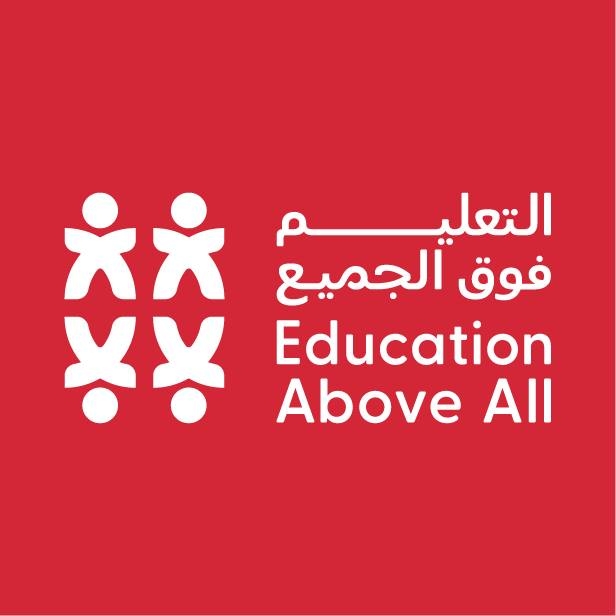
The Global Partnership for Education (GPE)
The Global Partnership for Education (GPE) has recently welcomed a contribution of nearly US$3 million from Norway to address the urgent educational needs of children in the West Bank and Gaza. This timely funding comes at a critical moment, With this contribution, GPE aims to provide a comprehensive response to the educational challenges faced by Palestinian children. The funding will focus on several key areas, including ensuring continued access to education for children who have been displaced or whose schools have been damaged or destroyed. One of the primary goals is to help schools reopen as quickly as possible, ensuring that students can return to their studies in a safe and supportive environment.
In addition to school reconstruction, the funding will be used to train and support teachers, who play a crucial role in helping children recover from the trauma of conflict. Teacher training programs will focus on equipping educators with the skills and resources necessary to address the psychological and emotional needs of students, many of whom have experienced severe stress due to the ongoing conflict.
Despite the ongoing efforts from international organizations, NGOs, and governments to improve education in Palestine, particularly in Gaza, the occupation remains a significant obstacle to achieving sustainable educational development. The constant threats of violence, school closures, and the destruction of educational infrastructure continue to disrupt the lives of Palestinian children and youth. While funding from global partners like the Global Partnership for Education and humanitarian organizations like Save the Children provides critical support, the challenges posed by the Israeli occupation cannot be fully addressed
Despite these daunting obstacles, the resilience of Palestinian students, teachers, and educators is unwavering. International support has been crucial in providing relief and ensuring education remains accessible. However, as long as the occupation restricts movement, blocks resources, and limits access to basic rights, efforts from international organizations alone won’t suffice. For lasting progress, a broader political resolution is needed to guarantee the safety and rights of Palestinians This includes the right to education and, most importantly, the right to return.

